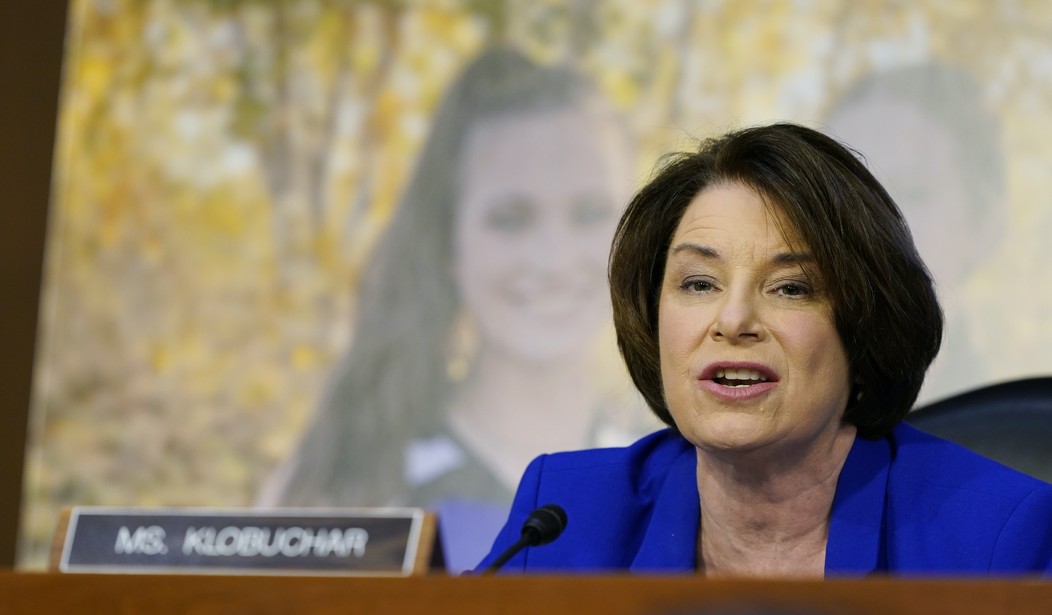An antitrust proposal scheduled for markup in the Senate Judiciary Committee on Thursday would arbitrarily choose which American businesses are subject to stringent new laws and massive fines unless lawmakers fix the bill’s serious flaws.
The bill, S.2992, the bipartisan American Innovation and Choice Online Act, is aimed at imposing new parameters on ‘Big Tech’ business practices. But it uses flawed metrics to attack certain businesses and favor others.
If the legislation’s cosponsors – Sens. Klobuchar, Grassley, Durbin, Graham, Blumenthal, Kennedy, Booker, Hirono, and Hawley – are serious about addressing consumer concerns, rather than simply penalizing popular businesses, they should be prepared to accept massive edits to the bill.
The proposal would levy big fines on companies based on market capitalization – the market value of a company's outstanding shares of stock – rather than the true value of a company.
It’s not hard to understand the problems with using stock price as a method of valuing a company. Just think back a year ago when Wall Street watched with confused frustration as a forum on Reddit upended established expectations for how stocks work.
When the company GameStop became a ‘meme stock,’ many so-called retail investors bought up its stock to squeeze short sellers that had bet against the company as online sales and streaming of video games had gutted its profits. On January 28, 2021, GameStop's total market capitalization – the price at which its stock trades multiplied by the number of shares – soared to $33.7 billion after having been only $1 billion two months earlier. This made a struggling video game retailer worth more, on paper, than the international convenience store chain 7/11. This is a clear flaw in valuing a company by virtue of the stock price.
Recommended
Sure, the GameStop example is extreme, but look at the value of the well-known electric vehicle company Tesla for another example. That company first exceeded $500 billion in market cap in November 2020, and since then has topped $1 trillion, despite selling fewer than a million of its high-end electric vehicles in 2021. Meanwhile, Toyota sold more than 2.3 million cars last year in the U.S. alone, but its market cap is just over a third of Tesla’s.
Market caps seem to depend more on Wall Street speculation rather than consumer choices and a fair market-based valuation of the company.
According to Sen. John Kennedy’s (R-LA) the American Innovation and Choice Online Act “would prohibit dominant platforms from abusing their gatekeeper power by favoring their own products or services, disadvantaging rivals or discriminating among businesses that use their platforms in a way that harms competition on the platform.” But Senators have exempted some companies that should be held to this standard by using the metric of stock value on Wall Street.
The Senate antitrust bill applies solely to “online platforms” that not only have at least 50 million users or at least one hundred thousand business users, but also must be part of a company with market capitalization over $550 billion. This is a radical departure from how U.S. laws normally apply. In a search of all current federal statutes, the phrase “market capitalization” comes up in only five, none of which is about determining how a business is run based on this paper valuation.
Clearly, the Senate is using the seemingly arbitrary $550 billion market cap threshold to select winners and losers in the bill. There’s little doubt that the number was chosen specifically to benefit particular companies and potentially harm others.
A market cap of $550 billion doesn’t mean the company has that much money in profit, or even revenue. That’s just what stock trading indicates it’s worth today. Yet if a company is found to have violated the American Innovation and Choice Online Act, it may be subject to a penalty of up to 15% of total revenues for a year – which can be more than twice its annual profits, especially in low-margin sectors such as retail.
The Senate bill says its purpose is “to provide that certain discriminatory conduct by covered platforms shall be unlawful.” But if a behavior is bad, it makes no sense to make it illegal only for companies with high stock prices. For example, if a company treats a worker differently because of her race or gender, U.S. law doesn’t consider the company’s market cap before determining whether that discrimination is unlawful.
Using market cap to determine which antitrust rules apply to which businesses will encourage companies that sneak under that threshold to engage in behavior that would be unlawful if done by those over the cap. It is bizarre, unjust and un-American.
As the Senate reviews the American Innovation and Choice Online Act, our lawmakers should start by eliminating the bill’s unprecedented use of market cap – a metric completely unrelated to actual workers and consumers – to decide how the law will apply.

























Join the conversation as a VIP Member